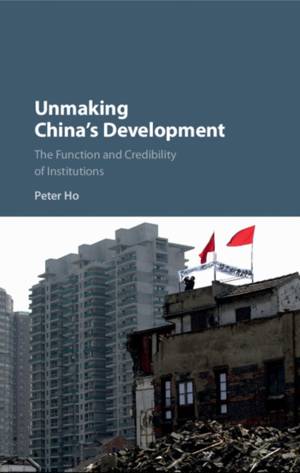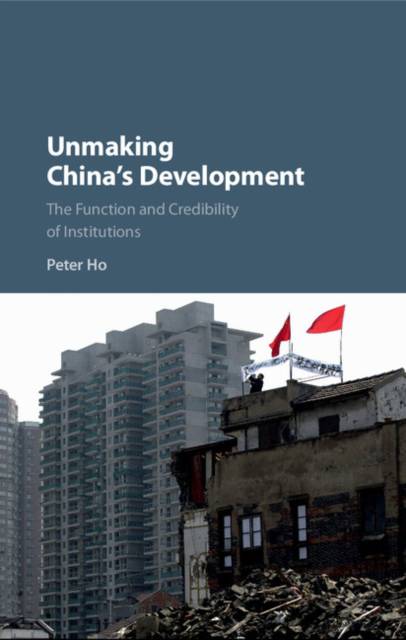
Je cadeautjes zeker op tijd in huis hebben voor de feestdagen? Kom langs in onze winkels en vind het perfecte geschenk!
- Afhalen na 1 uur in een winkel met voorraad
- Gratis thuislevering in België vanaf € 30
- Ruim aanbod met 7 miljoen producten
Je cadeautjes zeker op tijd in huis hebben voor de feestdagen? Kom langs in onze winkels en vind het perfecte geschenk!
- Afhalen na 1 uur in een winkel met voorraad
- Gratis thuislevering in België vanaf € 30
- Ruim aanbod met 7 miljoen producten
Zoeken
Unmaking China's Development
The Function and Credibility of Institutions
Peter Ho
Hardcover | Engels
€ 125,95
+ 251 punten
Omschrijving
Why would the removal of authoritarian institutions in some developing countries lead to sustained socio-economic crisis, while others experience explosive growth despite 'persisting' informal, insecure and rent-seeking institutional arrangements? A key to solving this enigma lies in understanding China, a country where the paradoxes of development are highly visible. Peter Ho argues that understanding China's economy necessitates an analytical refocusing from Form to Function, detached from normative assumptions about institutional appearance and developing instead a 'Credibility Thesis'. In this reading, once institutions endogenously emerge and persist through actors' conflicting interactions, they are credible. Ho develops this idea theoretically, methodologically, and empirically by examining institutions around the sector that propelled, yet, simultaneously destabilizes development: real estate - land, housing and natural resources. Ho shows how this sector can further both our understanding of institutions and issues of capital, labor, infrastructure and technology.
Specificaties
Betrokkenen
- Auteur(s):
- Uitgeverij:
Inhoud
- Aantal bladzijden:
- 336
- Taal:
- Engels
Eigenschappen
- Productcode (EAN):
- 9781107094109
- Verschijningsdatum:
- 26/10/2017
- Uitvoering:
- Hardcover
- Formaat:
- Genaaid
- Afmetingen:
- 164 mm x 240 mm
- Gewicht:
- 576 g

Alleen bij Standaard Boekhandel
+ 251 punten op je klantenkaart van Standaard Boekhandel
Beoordelingen
We publiceren alleen reviews die voldoen aan de voorwaarden voor reviews. Bekijk onze voorwaarden voor reviews.









